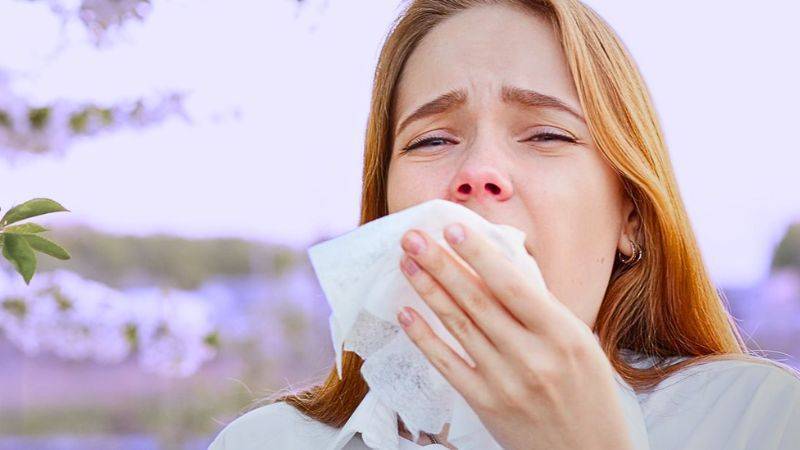Sneezing is one of your body’s built-in protective responses, designed to keep irritants from progressing deeper into your respiratory system, where they might cause significant issues.
However, some individuals have a heightened sensitivity to these irritants.
If you find yourself sneezing excessively, there’s usually no cause for alarm. While it’s rarely indicative of a severe health issue, it can indeed become a nuisance.
Often, you don’t have to depend on medicines to control your sneezing. Adopting certain lifestyle modifications can assist in preventing sneezing. Additionally, there’s an array of methods you can employ to halt an impending sneeze.
What triggers a sneeze?

Various elements that irritate your nasal lining can induce a sneeze. Known technically as sternutation, this reflex is typically prompted by dust particles, pollen, animal fur, among other similar irritants.
Sneezing also serves as a mechanism for your body to dispel unwanted pathogens that may agitate your nasal passages, prompting a sneeze.
Sneezing, akin to blinking or breathing, is a semi-autonomous reflex, meaning it can be somewhat controlled consciously.
While you might be able to postpone a sneeze long enough to reach for a tissue, halting it entirely can be challenging.
In this guide, we’ll provide you with various techniques to manage this:
Ways to Control Sneezing

Sneezing is often a symptom of allergies, triggered by substances such as pollen, dust, animal dander, or mold spores. Here are some general steps you can take to manage your sneezing allergies:
Understand your triggers
Determining what causes your sneezing is essential so you can respond appropriately. What provokes your sneezes?
Frequent triggers encompass:
- Dust
- Pollen
- Mold
- Animal dander
- Intense lights fragrances
- Spicy foods
- Black pepper
- Common cold viruses
If you suspect your sneezing is instigated by an allergic reaction to a certain substance and you’re struggling to identify these allergens, your physician can arrange an allergy test for you.
Avoid the Allergen
- Keeping windows closed during the pollen season
- Using air purifiers
- Keeping pets out of certain rooms
- Regularly cleaning your home to reduce dust and mold.
If you’re allergic to certain foods or medications, you should obviously avoid them as well.
Wear Sunglasses and Hats
If you are allergic to outdoor allergens like pollen, wearing sunglasses and a wide-brimmed hat can help reduce the amount of allergen that gets into your eyes and nose.
Clean Your Nasal Passages
You can use a saline solution to rinse out your nasal passages. This can help remove allergens and clear your nose.
Maintain a Healthy Lifestyle
Regular exercise, a healthy diet, and enough sleep can boost your immune system and help reduce allergy symptoms.
Use HEPA Filters

High-Efficiency Particulate Air (HEPA) filters are a type of air purification technology that’s designed to capture microscopic particles, including many allergens.
These filters are comprised of a dense mat of fibers arranged in a random pattern. They can capture particles as small as 0.3 microns in size with a 99.97% efficiency.
HEPA filters are particularly beneficial for people with allergies or asthma because they can significantly reduce the amount of airborne allergens in an indoor environment. These allergens may include dust, pet dander, pollen, mold spores, and even certain bacteria and viruses.
Manage Your Allergies
Individuals with allergies often sneeze in sequences of two or three. Pay attention to when and where you sneeze most frequently.
Seasonal allergies are quite prevalent. Allergies that seem location-specific, such as at your workplace, could stem from irritants like mold or pet dander.
A daily dose of an over-the-counter (OTC) anti-allergy tablet or nasal spray may be sufficient to keep your symptoms in check. Popular OTC antihistamine tablets encompass:
- Cetirizine (Zyrtec)
- Fexofenadine (Allegra)
- Loratadine (Claritin, Alavert)
You can find glucocorticosteroid nasal sprays such as fluticasone propionate (Flonase) and triamcinolone acetonide (Nasacort) over the counter as well.
You can purchase these OTC anti-allergy tablets and nasal sprays online.
Additionally, your doctor may prescribe a medication therapy that, subject to your insurance plan, could be a more cost-effective option.
Take Care of Yourself!
Also Read





